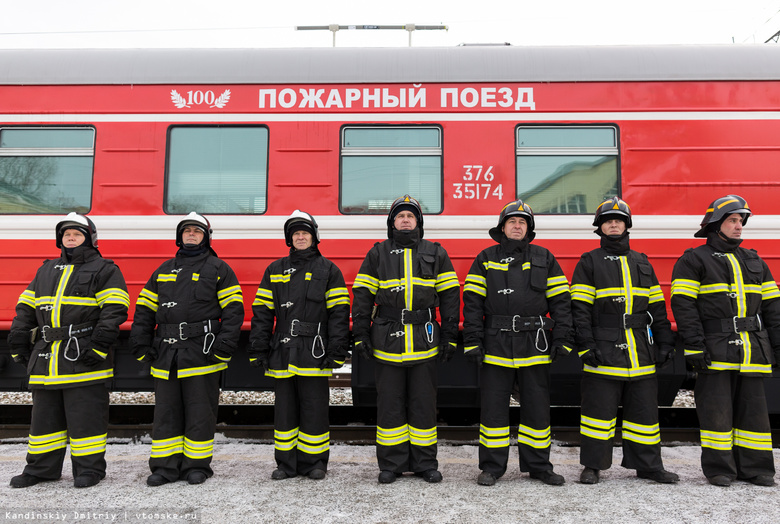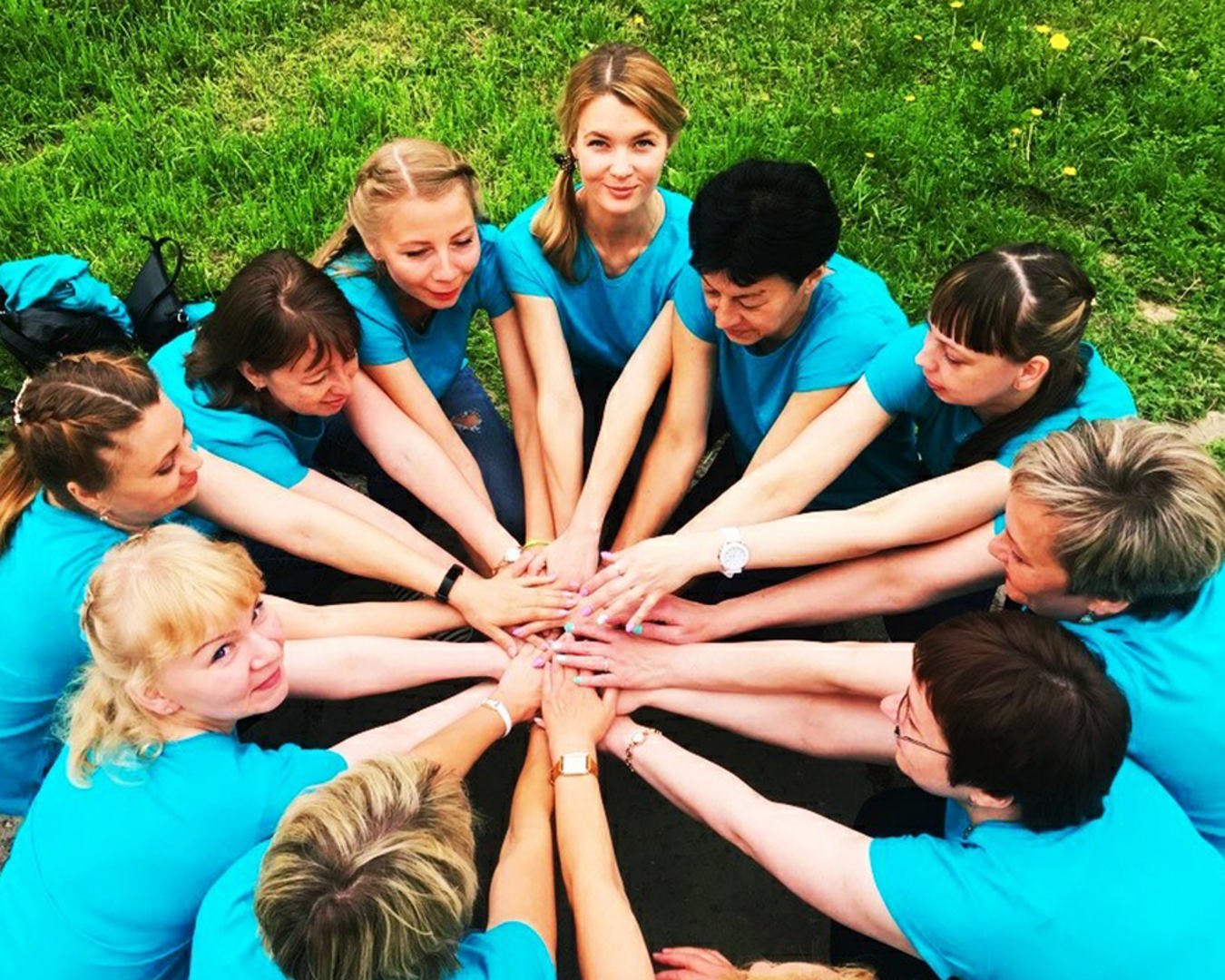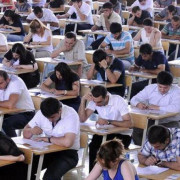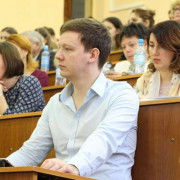The present perfect tense. упражнения c ответами
Содержание:
- Правильные глаголы: добавляем окончание -ed
- Упражнения Present Perfect vs. Present Perfect Continuous.
- Случаи употребления Present Perfect
- Чуть более сложные случаи употребления Present Perfect
- Сложные случаи употребления Present Perfect
- Маркеры времени Present Perfect
- Present Perfect Continuous or Present Perfect Simple Test
- Exercise 5. Сделайте из данных предложений отрицательные.
- Построение и употребление предложений в present perfect
- Present Perfect Key Words
- Exercise 6. Сделайте из данных предложений вопросительные.
- Правила образования Present Perfect
- Примеры вопросительных предложений и ответов
- Present Perfect Uses
- Примеры утвердительных предложений
- Exercise 3. Составьте предложения, используя Present Perfect.
- Давайте потренируемся
- Exercise 4. В следующих предложениях измените время глагола на Present Perfect. Переведите предложения на русский язык.
Правильные глаголы: добавляем окончание -ed
Look, play, call — это правильные глаголы. В Present Perfect к ним нужно добавлять окончание -ed:
look => looked (смотрел)
play => played (играл)
call => called (звонил)
Вспомним правила присоединения окончания -ed к глаголу.
- Если глагол заканчивается на согласную и оканчивается на -y (study, try), буква -y меняется на -i: studied, tried.
- Если глагол заканчивается на гласную и оканчивается на -y (play, stay), буква -y не меняется: played, stayed.
- Если глагол из одного слога заканчивается на согласную (кроме буквы -x), а перед ним стоит гласная (beg, stop), последняя буква удваивается: begged, stopped.
- Если глагол из нескольких слогов заканчивается на согласную, а перед ним стоит ударная гласная (fulfil, refer), последняя буква удваивается: fulfilled, referred.
А еще окончание -ed звучит по-разному с глаголами. Тренируем произношение:
- I have lived in London. — Я жил в Лондоне.
- Mary (she) has already finished cleaning. — Мэри уже закончила убираться.
- Students (they) have tried to pass exam. — Студенты пытались сдать экзамен.
Упражнения Present Perfect vs. Present Perfect Continuous.
Упражнение 1. Choose the right tense form.
- Nina has been learning/has learned English for 2 years.
- The birds have already flown/have been flying to the South.
- They have known /have been knowing him for many years.
- Mike has forgotten/has been forgetting to learn the poem.
- The children have been watching/have watched cartoons for 2 hours.
- The train has just come/has been coming.
- We haven’t been having/ haven’t had a holiday for 5 years.
- She has been teaching/has taught at this school for twenty years.
- David has been painting/has painted in his studio since 10 o’clock.
- Mary and Sam have collected/ have been collecting stamps for 3 years.
- Their parents have been/have being friends since their childhood.
- Dave has been/ has been being a student for 2 years.
Упражнение 2. Make sentences using Present Perfect or Present Perfect Continuous.
- I / read/Tolstoy stories/ in the park for two hours.
- I /read/three stories.
- Granny/knit/in the living room/ since morning.
- Helen/travel/round Europe/for 3 weeks.
- She/visit/already/3 countries.
Упражнение 3. Поставь глагол в скобках в Present Perfect или Present Perfect Continuous.
- I (not to see) him for ages.
- He (to do) his lessons since lunch.
- I (not to hear) about him for a long time.
- I (to drive) since I was 17.
- Jack (to fail) his driving test three times because к doesn’t know how to park.
- I think he (make) a lot of improvement.
- Alice (not/pass) her driving test because she doesn’t know the rules well.
- She (worry) about this for two months.
- She (study) the driver’s manual for hours every day.
- She (not/take) another test yet.
- I (to have) a headache since I got up.
- He is my friend, I (to know) him for a long time.
- Ivan has a stomachacke. He (to eat) junk food all day.
- I (never to hear) that song before.
Упражнение 4. Make questions using either Present Perfect or Present Perfect Continuous.
- My friend is waiting for me at the station. (How long…?)
- He translates books. (How many…?)
- Mother is making a cream cake. (How long…?)
- Bill is travelling in Europe at present. (How many countries…?)
- My parents are decorating the fir-tree. (How long…?)
- They are married. (How long…?)
Упражнение 5. Translate into English using either Present Perfect or Present Perfect Continuous.
- Моя жена рисует уже 5 лет, но ещё не продала ни одной картины.
- Я рад, что мы закончили эту работу.
- Мои руки грязные. Я работала в саду.
- Ник съел все конфеты.
- Вы когда-нибудь играли в шахматы?
Упражнение 6. Correct the mistakes if any.
- They are discussing the problem for hours, but has not solved it yet.
- Somebody has been playing tennis since 2 o’clock.
- Is it still raining? No, it have stopped.
- John has been winning the championship two times.
- The boys have fished for 3 hours.
- How many books have you written?
- Mike has invited many friends to his birthday party.
- He has been hating oranges since his childhood.
- They have been taken the dog for a walk.
- Irene has left for the airport.
Ответы к упражнениям
Exercise 1.
- has been learning
- have already flown
- have known
- has forgotten
- have been watching
- has just come
- haven’t had
- has been teaching
- has been painting
- have been collecting
- have been
- has been
Exercise 2.
- I have been reading Tolstoy stories in the park for two hours.
- I have read three stories.
- Granny has been knitting in the living room since morning.
- Helen has been traveling round Europe for 3 weeks.
- She has already visited 3 countries.
Exercise 3.
- haven’t seen
- has been doing
- have not heard
- have been driving
- has failed
- has made
- has not passed
- has been worrying
- has been studying
- has not taken
- have had
- have known
- has been eating
- have never heard
Exercise 4.
- (How long has he been waiting?)
- (How many books has he translated?)
- (How long has she been cooking?)
- (How many countries has he visited?)
- (How long have they been decorating the fir-tree?)
- (How long have they been married?)
Exercise 5.
- My wife has been drawing for 5 years, but she has not sold a single picture.
- I am glad that we have finished this work.
- My hands are dirty. I have been working in the garden.
- Nick has eaten all the sweets.
- Have you ever played chess?
Exercise 6.
- They have been discussing the problem for hours, but have not solved it yet.
- Correct
- Is it still raining? No, it has
- John has won the championship two times.
- The boys have been fishing for 3 hours.
- Correct
- Correct
- He has hated oranges since his childhood.
- They have taken the dog for a walk.
- Correct
Случаи употребления Present Perfect
Мы разделили правила употребления Present Perfect на три уровня сложности: простые, чуть сложнее и сложные. Если сложно запомнить все и сразу, запомните сначала простые примеры.
Простые случаи употребления Present Perfect
Действие совершилось в прошлом или недавнем прошлом (не важно точное время), и виден результат (а вот результат очень важен)
Bob has bought a house. — Боб купил дом
(Боб купил его в прошлом, не так важно — когда именно. Зато важен результат — новый дом)
I know Mary. We have already met. — Я знаю Мэри. Мы уже встречались. (Познакомились в прошлом, и вот он результат — мы знаем друг друга)
Mary has lost her wallet, she can’t pay the bill. — Мэри потеряла кошелек, и теперь не может оплатить счет. (Результат потери кошелька в прошлом влияет на настоящее — Мэри не платежеспособна).
Действие произошло в незаконченный период времени — this week (на этой неделе), this morning (сегодня утром), today (сегодня)
This week we have watched 5 episodes. — На этой неделе мы посмотрели 5 серий. (Неделя еще не закончилась, кто знает — сколько еще серий мы посмотрим)
Today I have visited the dentist. — Сегодня я посетил зубного врача. (Я уже это сделал, но сегодня еще не закончилось)
Опыт, который с вами случился. Как-будто вы говорите «У меня есть опыт изучения английского»
Have you ever been to Russia? — Ты был когда-нибудь в России?
Mary has been to Moscow. — Мэри была в Москве.
I have never eaten noodles. — Я никогда не ел лапшу.
Bob has studied English. — Боб учил английский
Чуть более сложные случаи употребления Present PerfectИзменения, которые произошли с течением времени
Незавершенное действие, которое вы ожидаете
Достижения, которые не привязаны к конкретному времени
Действие, которое началось в прошлом, и все еще продолжается и актуально на сегодняшний момент
Отрицательные действия, которые мы не делали какое-то время
|
Сложные случаи употребления Present PerfectНовости, которые случились недавно. О самом событии мы говорим в Present Perfect, а рассказ о деталях продолжаем в Past Simple. Mary has passed a driving test! First they asked her to turn left, then she drove 2 kilometers in the city and parked safely. — Мэри сдала экзамен по вождению! Сначала они попросили ее повернуть налево, потом она ехала 2 километра по городу и безопасно припарковалась. |
Маркеры времени Present Perfect
Слова-маркеры, слова-якоря или вспомогательные слова указывают на время Present Perfect. Если вы хотите сказать или написать такое слово — скорее всего, все предложение будет в Present Perfect.
А вот примеры с этими словами:
- Bob hasn’t arrived yet. — Боб еще не приехал.
- Mary has already passed a test. — Мэри уже сдала тест.
- Have you ever tried pizza? — Ты когда-либо ел пиццу?
- I have never been to London. — Я никогда не был в Лондоне.
- I have bought a new car recently. — Я купил новую машину недавно.
- Bob hasn’t heard from Mary lately. — Боб не слышал от Мэри ничего в последнее время.
Present Perfect Continuous or Present Perfect Simple Test
Тест на Present Perfect Continuous и Present Perfect Simple подходит для школьного тестирования с углубленным изучением: 3, 4, 5; а также 6, 7, 8, 9, 10 класс. При необходимости изучите соответствующие материалы в разделе Грамматика английского языка.
Выберите наиболее подходящий вариант:
|
1 |
We ___ to the theatre since last month. | ||||
|
A |
haven’t been |
B |
haven’t been going |
C |
hasn’t gone |
|
2 |
My friends and I ___ since 2 o’clock. | ||||
|
A |
have sunbathed |
B |
have been sunbathing |
C |
has been sunbathing |
|
3 |
Sally ___ news since she left university. | ||||
|
A |
have reported |
B |
has been reporting |
C |
has reported |
|
4 |
Jane is abroad. She ___ three countries. | ||||
|
A |
has already been visiting |
B |
have already visited |
C |
has already visited |
|
5 |
___ dancing lessons? | ||||
|
A |
Has you ever taken |
B |
Have you ever taken |
C |
Has you ever been taking |
|
6 |
I want to buy a new flat. I ___ money for ages. | ||||
|
A |
has been saving |
B |
have saved |
C |
have been saving |
|
7 |
My uncle is a doctor. He ___ lots of vital operations. | ||||
|
A |
has made |
B |
has been making |
C |
have made |
|
8 |
Jack is cold. He ___ for too long. | ||||
|
A |
has been swimming |
B |
have been swimming |
C |
has swum |
|
9 |
Den ___ championships before. | ||||
|
A |
has never won |
B |
hasn’t never won |
C |
has never been winning |
|
10 |
We ___ in this café before. | ||||
|
A |
haven’t been eating |
B |
haven’t eaten |
C |
hasn’t eaten |
|
11 |
I don’t want to go out. The cold wind ___ since morning. | ||||
|
A |
have been blowing |
B |
has blown |
C |
has been blowing |
|
12 |
It’s the first time Martin ___ ill. | ||||
|
A |
has been falling |
B |
has fallen |
C |
have fallen |
|
13 |
How long ___ this research? | ||||
|
A |
have you been making |
B |
has you been making |
C |
have you made |
|
14 |
___ many people to our wedding ceremony? | ||||
|
A |
Has you invited |
B |
Have you been inviting |
C |
Have you invited |
|
15 |
Cathy ___ since 2 o’clock. She is exhausted. | ||||
|
A |
have been driving |
B |
has driven |
C |
has been driving |
|
16 |
Bob ___ his new pencil case. | ||||
|
A |
have already lost |
B |
has already lost |
C |
has already been losing |
|
17 |
We ___ to such a big park before. | ||||
|
A |
have never been |
B |
has never been |
C |
haven’t never been |
|
18 |
My eyes are tired. I ___ since afternoon. | ||||
|
A |
has been reading |
B |
have been reading |
C |
have read |
|
19 |
He ___ in London for two weeks now. | ||||
|
A |
has been staying |
B |
have been staying |
C |
has stayed |
|
20 |
We ___ the rent yet. | ||||
|
A |
hasn’t paid |
B |
haven’t been paying |
C |
haven’t paid |
|
21 |
___ books for a long time? | ||||
|
A |
Has you been writing |
B |
Have you been writing |
C |
Have you written |
|
22 |
Marta __ in the shopping centre for 2 hours. | ||||
|
A |
have been |
B |
has been |
C |
has being |
|
23 |
I ___ to go scuba diving. | ||||
|
A |
have always wanted |
B |
have always been wanting |
C |
has always wanted |
|
24 |
Where have you been? Mom ___ for you all day. | ||||
|
A |
has looked |
B |
have been looking |
C |
has been looking |
|
25 |
___ the latest news? | ||||
|
A |
Have you been hearing |
B |
Have you heard |
C |
Has you heard |
Пройти тест онлайн без регистрации: тест на сравнение Present Perfect Continuous и Present Perfect Simple
Скачать тест: Present Perfect Continuous и Present Perfect Simple в формате pdf – Present Perfect Continuous Present Perfect Simple Test
Тест на Present Perfect Continuous и Present Perfect Simple с ответами
|
1 |
A |
|
2 |
B |
|
3 |
B |
|
4 |
C |
|
5 |
B |
|
6 |
C |
|
7 |
A |
|
8 |
A |
|
9 |
A |
|
10 |
B |
|
11 |
C |
|
12 |
B |
|
13 |
A |
|
14 |
C |
|
15 |
C |
|
16 |
B |
|
17 |
A |
|
18 |
B |
|
19 |
A |
|
20 |
C |
|
21 |
B |
|
22 |
B |
|
23 |
A |
|
24 |
C |
|
25 |
B |
Exercise 5. Сделайте из данных предложений отрицательные.
- She has found a wallet on the road.
- We have tidied our country house.
- The weather has changed.
- Liz has left you a note.
- They have moved to another hotel.
- I have caught a big fish.
- Pupils have learned this poem.
- Mike has booked the tickets for us.
- The plane has landed.
- The doctor has prescribed some medicine.
Answers: 1. She hasn’t found a wallet on the road. 2.We haven’t tidied our cottage house. 3.The weather hasn’t changed. 4. Liz hasn’t left you a note. 5.They haven’t moved to another hotel. 6. I haven’t caught a big fish. 7. Pupils haven’t learned this poem. 8. Mike hasn’t booked the tickets for us. 9. The plane hasn’t landed. 10. The doctor hasn’t prescribed some medicine.
Построение и употребление предложений в present perfect
Перфектные времена используются для выражения результативности и завершенности действий и событий. Настоящее совершенное время указывает на то, что совершенное действие имеет непосредственное отношение к данному моменту времени, т.е. либо было завершено только что, либо сейчас актуален его результат.
Для того, чтобы правильно выполнить упражнения на present perfect, необходимо уверенно ориентироваться в построении его конструкций. Для создания утверждения следует правильно согласовать с подлежащим форму вспомогательного глагола have и добавить в сказуемое причастие прошедшего времени. Его форму необходимо либо искать в таблицах и запоминать (если это неправильный глагол), либо образовать путем присоединения к инфинитиву окончания –ed. Рассмотрим примеры.
- She has just cooked dinner – Она только что приготовила обед.
- We have finished the work on this project – Мы завершили работу над этим проектом.
Совершённое время способно самостоятельно образовывать вопросительные и отрицательные высказывания. В первом случае для этого перемещают вспомогательный have в начало предложения, а во втором – после have добавляют частицу not. В формальной речи эти выражения стоят отдельно, а в разговорной часто сливаются в сокращенные конструкции: haven’t/hasn’t.
- Have they sent these documents already? – Они уже отправили эти документы?
- He hasn’t been to my party – Его не было на моей вечеринке.
Прежде чем решать на отработку present perfect практические упражнения, необходимо составить четкое понимание сферы употребления данного аспекта. Тем более, что его часто путают с другими временами. Итак, в общих чертах выделяют несколько характерных случаев применения презент перфект:
- Указание на недавно завершившееся действие;
- Выражение полученного опыта;
- Обозначение произошедших изменений, улучшений, достижений;
- Описание неоднократно совершавшихся действий;
- Указание на ожидаемое, но пока не законченное действие (отрицание).
Главное, что важно отметить, – перфектное настоящее не имеет конкретного указателя времени. Оно выражает начало, продолжительность и окончание действий/событий с помощью абстрактных понятий: всегда, никогда, только что, уже, еще, к такому-то времени, с такого то времени и т.п
Теперь, когда мы вспомнили всю теорию на present perfect tense, решать упражнения будет намного легче. Приступим к выполнению тренировки полученных знаний! Напоминаем, что задания разделены на базовый и повышенный уровни сложности.
Present Perfect Key Words
There are some key words used with the present perfect that include the following:
- For
- Since
- Already
- Yet
- Still
For
For is used for periods of time. Some examples of time are years, days, or hours.
Examples:
- I have been a teacher for 4 years.
- Karen has lived in Toronto for 8 years.
- They have been here for 2 hours.
Since
Since is used for specific dates.
Examples:
- I have been a teacher since
- Karen has lived in Toronto since
- They have been here since 5:00 pm.
Watch how for and since are similar but different.
- I have been a teacher since 2004. I have been a teacher for 9 years.
- He has not eaten since 3 pm. He has not eaten in 6 hours.
To practice the difference between for and since, use this test:
Yet
“Yet” is for negative sentences and questions. It always goes at the end of the sentence. Here are some examples:
Negative Sentences
- I have not eaten dinner yet.
- She has not seen that movie yet.
- They have not arrived yet.
Questions
- Have you eaten dinner yet?
- Has he seen that movie yet?
- Has Tina arrived yet?
Already
“Already” is for affirmative sentences. It can go at the end of a sentence:
- I have eaten dinner already.
- She has taken the test already.
- Dan and Jen have had breakfast already.
It also goes between the auxiliary and the main verb:
- I have already eaten dinner.
- She has already taken the test.
- Dan and Jen have already had breakfast.
Here are some more examples:
- She has already
- He has left already.
- Jake and Fred have already finished their work.
Still
Still is for negative sentences. It goes before the auxiliary verb. Here are some examples:
- I still have not eaten dinner.
- She still has not arrived.
- Chris still hasn’t woken up.
To practice the difference between already, still, and yet, try this test:
Exercise 6. Сделайте из данных предложений вопросительные.
- We have been to the theatre.
- I have painted the walls in my bedroom.
- Richard has turned on the radio.
- They have explained this rule to me.
- Amy and Ron have gone to play tennis.
- Molly has made a cup of tea.
- His parents have gone to the market.
- Nelly has typed three letters.
- The parrot has flown away.
- The students have prepared for the exams.

Answers: 1.Have we been to the theatre? 2. I have painted the walls in my bedroom. 3. Has Richard turned on the radio? 4. Have they explained this rule to me? 5. Have Amy and Ron gone to play tennis? 6. Has Molly made a cup of tea? 7. Have his parents gone to the market? 8. Has Nelly typed three letters? 9. Has the parrot flown away? 10. Have the students prepared for the exams?
Правила образования Present Perfect
Русскоязычным сложно понять настоящее совершенное время в английском языке, потому что англоговорящие носители по-другому воспринимают течение времени. С нашей точки зрения действие не может закончиться в настоящем. Если оно завершилось, то это прошедшее время. Англоязычный человек придерживается иной логики: действие может закончиться в настоящем, и пример этому – Презент Перфект.
Рассмотрим для Present Perfect правила образования глагольных форм.
- Как образуется present perfect в утвердительных предложениях:
Для английского Презент перфект правила гласят, что сказуемое состоит из вспомогательного глагола «have (has)» и основного глагола. С местоимениями «I, you, we, they» и существительными во множественном числе нужно применять «have», а с местоимениями «he, she, it» и существительными в единственном числе – «has».
В качестве основного глагола в данном случае используется его третья форма, которую получают двумя методами:
- если глагол правильный, то к основе добавляется окончание «-ed»;
- если глагол неправильный, то берется третья форма из соответствующей таблицы.
Утверждение в present perfect, примеры:
| I/We/You/They + have + 3‑я форма глагола | He/She/It + has + 3‑я форма глагола |
| I have finished. – Я закончил. | He has played. – Он играл. |
| You have started. – Вы начали. | She has run. – Она прибежала. |
| We have gone. – Мы ушли. | It has printed. – Оно печатало. |
| They have come. – Они пришли. |

- Как образуется презент перфект симпл в отрицательных предложениях:
Для построения отрицания с Present Perfect, необходимо между вспомогательным глаголом и основным поставить отрицательную частицу «not».
Отрицание в презент перфект, примеры:
| I/We/You/They + have + 3‑я форма глагола | He/She/It + has + 3‑я форма глагола |
| I have not finished. – Я не закончил. | He has not played. – Он не играл. |
| You have not started. – Вы не начали. | She has not run. – Она не прибежала. |
| We have not gone. – Мы не ушли. | It has not printed. – Оно не печатало. |
| They have not come. – Они не пришли. |
При этом глагол «to have (has)» в разговорной речи часто принимает сокращенную форму. В утвердительном предложении «have (has)» соединяется с местоимением и в сокращении приобретает форму «‘ve» или «‘s». К примеру:
- We’ve gone.
- He’s decided.
А в отрицательных высказываниях «have (has)» соединяется с частицей «not», приобретая форму «haven’t» или «hasn’t». Например:
- I haven’t started.
- She hasn’t done.
Такая форма больше используется в устной речи.
- Как образуются вопросительные предложения в present perfect:
При построении вопроса в Презент перфект вспомогательный глагол выносится на место перед подлежащим, а основной глагол остается после него.
Отрицание в презент перфект, примеры:
| I/We/You/They + have + 3‑я форма глагола | He/She/It + has + 3‑я форма глагола |
| Have I finished? – Я закончил? | Has he played? – Он играл? |
| Have you started? – Вы начали? | Has she run? – Она прибежала? |
| Have we gone? – Мы ушли? | Has it printed? – Оно печатало? |
| Have they come? – Они пришли? |
Упражнения помогут вам лучше запомнить правила образования Present Perfect.
Примеры вопросительных предложений и ответов
Чтобы составить вопрос в Present Perfect, нужно have/has вынести вперед, перед подлежащим. Например:
- He has done it (Он сделал это)
- Has he done it? (Он сделал это?)
Краткий ответ состоит из Yes + местоимение, заменяющее подлежащее + have / has. No + местоимение, заменяющее подлежащее + haven’t / hasn’t. Например:
- Have they arrived? — Yes, they have. (Они приехали? — Да.)
- Has Nina called you? — No, she hasn’t. (Нина звонила тебе? — Нет.)
Специальный вопрос начинается с вопросительных слов Where, What, When, Why, How и тд.
Why has he done it? (Почему он это сделал?)
| Вопрос | Перевод | Ответ | Перевод |
| Have you ever been to Paris? | Ты когда-либо был в Париже? | Yes, I have. / No, I haven’t. | Да / Нет |
| Have they invited you? | Они тебя пригласили? | Yes, they have. / No, they haven’t. | Да / Нет |
| Have you called Jane? | Ты позвонил Джейн? | Yes, I have. / No, I haven’t. | Да / Нет |
| Have we met before? | Мы раньше встречались? | Yes, we have. / No, we haven’t. | Да / Нет |
| Where have you put the bag? | Куда ты положил сумку? | On the sofa. | На диван. |
| Has she done her homework? | Она сделала домашнюю работу? | Yes, she has. / No, she hasn’t. | Да / Нет |
| Has he applied for University? | Он подал документы в университет? | Yes, he has. / No, he hasn’t. | Да / Нет |
| Has Kitty signed the contract? | Китти подписала контракт? | Yes, she has. / No, she hasn’t. | Да / Нет |
| Has the lesson started? | Урок начался? | Yes, it has. / No, it hasn’t. | Да / Нет |
| What presents has she bought? | Какие подарки она купила? | Toys and sweets. | Игрушки и сладости. |
И напоследок, чтобы закрепить материал, советую вам посмотреть видео по всем трем видам предложений в Present Perfect:
Вам может быть интересно:
- Примеры предложений в Past Simple
- Примеры предложений в Present Simple
- Тест на Present Perfect
Present Perfect Uses
The present perfect has 2 main uses:
- Actions in the past with no specific time
- Actions in the past that continue into the present
No Specific Time
Present perfect is for actions in the past with no time. This could be for a number of reasons:
- Time is unknown
- Time is not important
- The action has happened many times
Let’s think about a few examples.
- He has found his keys.
- I have gone to New York City 3 times.
- I have not finished my project.
- We have seen that movie many times.
In this example, it is not important when he found his keys. We only care he found them.
This example shows an action that has happened many times. Because the present perfect has no specific time, it is not used with time phrases. These examples are incorrect.
- I have eaten lunch yesterday.
- She has taken an English class last year.
In a situation with a specific time, use the simple past. For example:
- I ate lunch yesterday.
- She took an English class last year.
Actions that Continue to the Present
Some actions start in the past, but they continue in the present. This is shown with the present perfect.
Examples:
I have lived in Paris for 3 years.
(I live in Paris now.)
She has worked as a teacher since 2003.
(She started to teach in 2003. She is a teacher now.)
I have been a student at this school for 2 years.
(I am still a student.)
Примеры утвердительных предложений
В утвердительном предложении глагол have имеет две формы — have и has. Has используется с 3-м лицом ед. числа, have — со всеми остальными. Причастие прошедшего времени — это глагол с окончанием —ed (played, worked, danced) или глагол в третьей форме (bought, taken, put). Третью форму глагола можно найти в таблице.
Have и has в разговорной речи сокращаются: I’ve, he’s, she’s, we’ve, they’ve.
| Полная форма | Сокращенная форма | Перевод |
| He has won the competition. | He‘s won the competition. | Он выиграл соревнование. |
| They have moved to Sydney recently. | They‘ve moved to Sydney recently. | Они недавно переехали в Сидней. |
| I have already been to their concert once. | I’ve already been to their concert once. | Я уже был на их концерте один раз. |
| Kyle has made 3 mistakes in his test so far. | Kyle‘s made 3 mistakes in his test so far. | Пока что Кайл сделал 3 ошибки в тесте. |
| The writer has published a new book. | The writer‘s published a new book. | Писатель опубликовал новую книгу. |
| I have just broken the vase. | I‘ve just broken the vase. | Я только что разбил(а) вазу. |
| She has opened the window. | She‘s opened the window. | Она открыла окно. |
| We have just heard a strange noise. | We‘ve just heard a strange noise. | Мы только что услышали странный звук. |
| You have always liked flowers. | You‘ve always liked flowers. | Ты всегда любила цветы. |
| I have talked to her before. | I‘ve talked to her before. | Я разговаривал с ней раньше. |
Exercise 3. Составьте предложения, используя Present Perfect.
- We/to return/from the journey/just.
- I/to see/my boss/today.
- Helen/to decorate/her room/already.
- My cousins/to be/to this cinema/never.
- Max/to buy/а magazine/today.
- You/to spend/а lot of money/this month.
- Ian and Peter/to repair/the radio/already.
- I/to drive/а car/never.
- We/to get/some letters/this week.
- The dog/to run away/just.

Answers: 1. We have just returned from the journey. 2. I have seen my boss today. 3. Helen has already decorated her room. 4. My cousins have never been to this cinema. 5. Max has bought a magazine today. 6. You have spent a lot of money this month. 7. Ian and Peter have already repaired the radio. 8. I have never driven a car. 9. We have got some letters this week. 10. The dog has just run away.
Давайте потренируемся
Попробуйте правильно изменить глагол в скобках. Ниже мы дадим правильные ответы, но вы не подглядывайте.
- Mary (know) Bob since school.
- Mary (learn) how to drive.
- Bob (see) that movie many times.
- People (travel) to the Moon.
- I know Mary. We (already, meet).
- Bob (buy) a house.
- Students (not, finish) the task yet.
Правильные ответы
- Mary has known Bob since school.
- Mary has learnt how to drive.
- Bob have seen that movie many times.
- People have traveled to the Moon.
- I know Mary. We have already met.
- Bob has bought a house.
- Students have not finishedthe task yet.
В детской школе Skysmart такие упражнения преподаватель и ученик делают на специальной платформе Vimbox. Внутри платформы: интерактивные задания, словарик с озвучкой слов, ютуб-видео для практики Listening и даже стикеры с лисятами для атмосферы. Запишите вашего ребенка на бесплатное вводное занятие по английскому и начните заниматься уже завтра.
Exercise 4. В следующих предложениях измените время глагола на Present Perfect. Переведите предложения на русский язык.
- The pupils are writing a dictation.
- My friend is helping me to solve a difficult problem.
- I am learning a poem.
- She is telling them an interesting story.
- Kate is sweeping the floor.
- The waiter is putting a bottle of lemonade in front of him.
- I am eating my breakfast.
- We are drinking water.
- He is bringing them some meat and vegetables.
- You are putting the dishes on the table.
- They are having tea.
- She is taking the dirty plates from the table.
- The children are putting on their coats.
- Susan is making a new dress for her birthday party.
- She is opening a box of chocolates.
- I am buying milk for milk shakes.
- James is ordering a bottle of apple juice.
- We are looking for more CDs with good music.
- Are you recording your favourite film on his video recorder?
- I am translating a difficult article from German into Russian.
Answers: 1. have written. 2. has helped. 3. have learnt. 4. has told. 5. has swept. 6. has put. 7. have eaten. 8. have drunk. 9. has brought. 10. have put. 11. have had. 12. has taken. 13. have put on. 14. has made. 15. has opened. 16. have bought. 17. has ordered. 18. have looked. 19. have you recorded. 20. have translated.
Перевод: 1. Ученики написали диктант. 2. Мой друг помог мне решить трудную задачу. 3. Я выучил стихотворение. 4. Она рассказала им интересную историю. 5. Катя подмела пол. 6. Официант поставил перед ним бутылку лимонада. 7. Я позавтракал. 8. Мы выпили воды. 9. Он принес им мясо с овощами. 10. Ты поставил посуду на стол. 11. Они выпили чаю. 12. Она убрала со стола грязные тарелки. 13. Дети надели пальто. 14. Сюзанна сшила себе платье на день рождения. 15. Она открыла коробку шоколадных конфет. 16. Я купила молоко для молочного коктейля. 17. Джеймс заказал бутылочку яблочного сока. 18. Мы поискали побольше компакт-дисков с хорошей музыкой. 19. Ты записал свой любимый фильм на его видеомагнитофоне? 20. Я перевел трудную статью с немецкого языка на русский.






